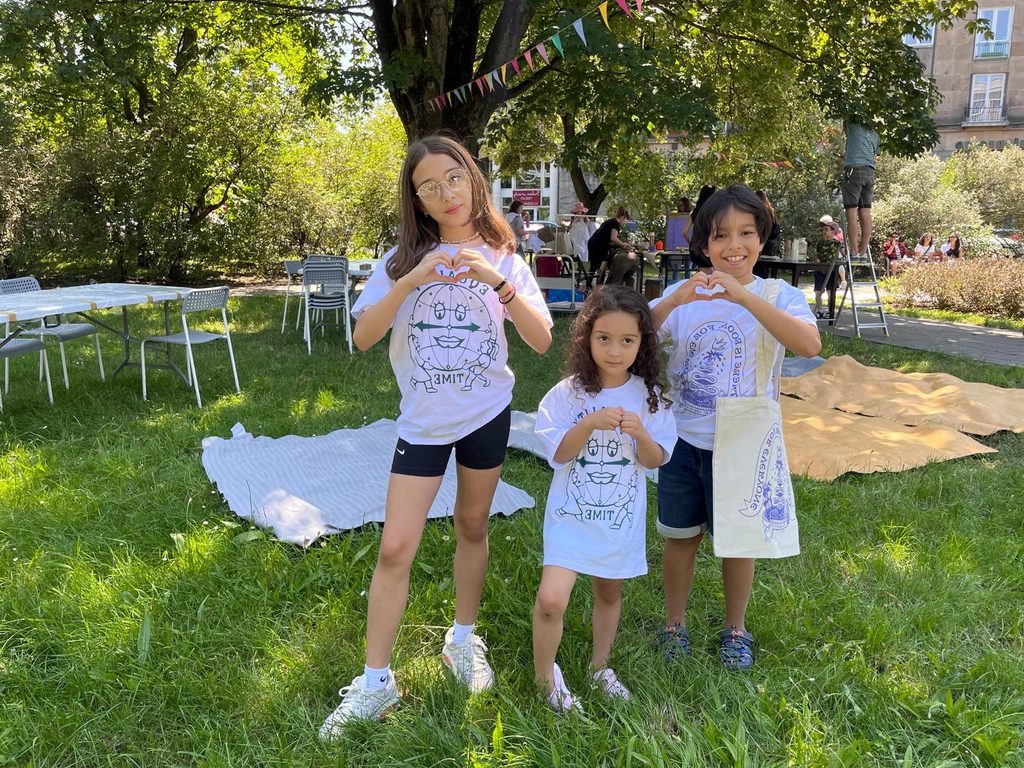Not alone in the system: a caseworker’s perspective
The Polish Migration Forum Foundation
As a caseworkers' team coordinator for the Polish Migration Forum, Aliaksei assists people during some of their most difficult times. They are primarily Ukrainians who escaped as refugees — sometimes single mothers, seniors, or individuals with disabilities — hoping to be supported with such essentials as food, housing, health care, or an education for their children.
Polish Migration Forum (PFM) combines mental health and psychosocial support, education and integration services, and protection measures for Ukrainian refugees in Poland. This includes psychological and psychiatric consultations, school-based workshops, case management, family integration events, and training for educators preparing for the mandatory integration of Ukrainian children into Polish schools from September 2024.

From emergency responses to meeting more complex needs
“I see how my team has grown as specialists. I’m proud of that.”
Aliaksei, PFM caseworkers’ team coordinator
In the early months of the crisis, assistance was usually concise: a place to stay, mobile sustenance, quick counsel. But now the cases entail much more. Families present barriers like being excluded from social housing, difficulties enrolling children in school, or needing extensive medical support. All demand persistence, creativity, and often cross-organisational cooperation.
“Of course, there are challenges we still face,” says Aliaksei, “Domestic violence cases are very demanding emotionally and practically. Working with families where children don’t go to school is also tough, especially when parents don’t realise the consequences. We try to train ourselves constantly, but good training depends on who delivers it. Once we had trainers with no experience in social work or mental health—it was useless. Later we got much better training, and I see how my team has grown as specialists. I’m proud of that.”
The importance of presence
“I am also a migrant and I know what it’s like when you come to an institution, to an office, and it’s just you and the system sitting opposite you.“
Aliaksei, PFM caseworkers’ team coordinator
What has most impact, Aliaksei explains, is presence: being with people as they face complicated systems, whether a doctor’s waiting room, a government bureaucracy office, or a police station.
He states that, “The very fact that these people have someone who can go with them, because I am also a migrant and I know what it’s like when you come to an institution, to an office, and it’s just you and the system sitting opposite you. And here it also depends on the person you meet along the way, who is sitting opposite you, whether it is an employee of the social insurance institution, or an office, or a school, or even a doctor, etc. Everything depends on that.
“And the fact that you have someone next to you who is certainly with you and knows what, how, and what for. Even the simple fact that they speak Polish is very supportive.” Aliaksei adds, “Not only in terms of facts and substance, but also emotionally”.
Big-small victories
Even with dwindling resources, positive change is achievable. Aliaksei remembers one woman with 2 teenagers, one step away from homeless and defeated. With consistent support from PMF caseworkers, she found housing, medical attention, and a road to a job. For her, that is where the work is most effective: bringing stability back, dignity back, hope back.
Effects for the future
Over 23 months, the project supported thousands of children and families, building emotional resilience, enabling educational inclusion, and strengthening long-term community bonds. By combining immediate assistance with systemic interventions, the initiative contributed to creating safer, more inclusive environments for refugee children, girls, and their caregivers in Poland.
Since the escalation of the war in Ukraine, Poland has hosted one of the largest populations of refugees fleeing conflict, with children and families facing uncertainty, trauma, and major barriers to integration. In response, PFM, in partnership with Plan International Poland, implemented a comprehensive, needs-driven project between September 2023 and July 2025 to strengthen the resilience, protection, and inclusion of refugee children and their families.
Refugee children in particular experience disruption to education, heightened anxiety, and challenges adapting to new environments. Families often struggle with unstable housing, shifting state policies, and limited access to tailored health and social services, pregnant women, new mothers, and persons with disabilities are especially vulnerable, facing gaps in healthcare and protection support. Rising anti-refugee rhetoric during Poland’s 2025 presidential campaign further compounded these risks.
Categories: Emergencies


